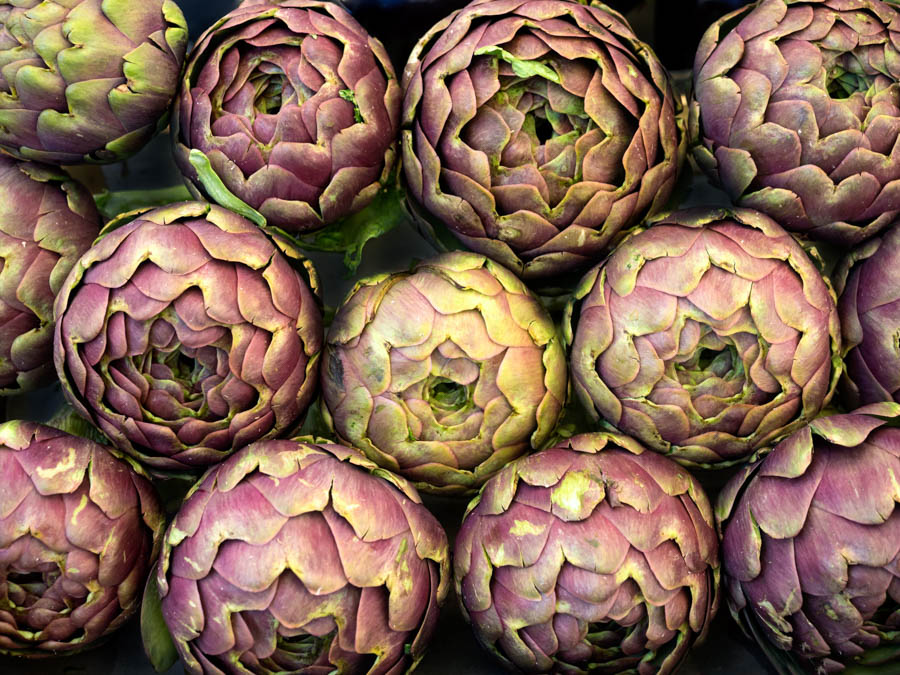Getting Started With Artichokes

Artichokes are cool season perennials grown for their immature flower buds. Though it seems difficult to believe, artichokes are related to lettuce, endive, and sunflower and belong to the massive Aster family. Gardeners should consider the soil, watering and microclimate requirements of artichokes before planting.
How to Purchase. GardenZeus recommends starting artichoke plants from transplants. Purchase plants yourself or take divisions from a friend with a mature plant.
Microclimate. The ideal growing conditions for artichokes are cool and mild, yet sunny climates. Artichokes prefer temperatures between 45-85°F, with the ideal daytime of 75°F and an ideal nighttime temperature of 55°F. If temperatures rise above 86°F, the quality of artichoke buds decline. To maximize the likelihood of success, gardeners in California’s warmer inland valleys should place artichokes in partial shade, be prepared to regulate temperature with shade cloth and select heat tolerant varieties. Artichokes grown in the warm to hot conditions found in many of California’s inland valleys often produce tough buds and poor yields.
Artichoke plants tolerate light frost, although buds may show some freeze damage. Heavy frost can be tolerated by mature plants, though severe or recurring heavy frosts will likely kill them. GardenZeus recommends heavily mulching artichokes in the winter to protect their roots.
Soil Requirements. Artichokes prefer rich, well-draining, biologically active soil. They perform best neutral to slightly alkaline soils with good fertility and organic matter. Loamy clay soils that hold water are ideal, and sandier, quickly draining soils are not recommended. Artichokes thrive in clay soils, as long as they have good drainage and soil structure. GardenZeus recommends incorporating several inches of high quality compost into your soil before planting.
GardenZeus recommends providing additional nitrogen to artichoke plants when plants are actively growing in the spring.
Watering. Artichokes like moist soil and should be watered deeply as their root systems may extend to 3 to 4 feet deep. It is particularly important to provide ample water while buds are forming and during periods of hot and dry weather. Once established, plants can be drought tolerant, especially if grown for ornamental purposes rather than for edible buds, which typically requires more water. On the other hand, artichokes are sensitive to excessive moisture, and may succumb to root or crown rot in overly wet soils, especially soil near crowns. Keep wet mulch away from the crowns of the artichoke plants.
Once established, artichoke plants will produce artichoke buds and flowers for years.
To view customized growing information for your area, go to GardenZeus and enter your zip code.
Other articles of interest: